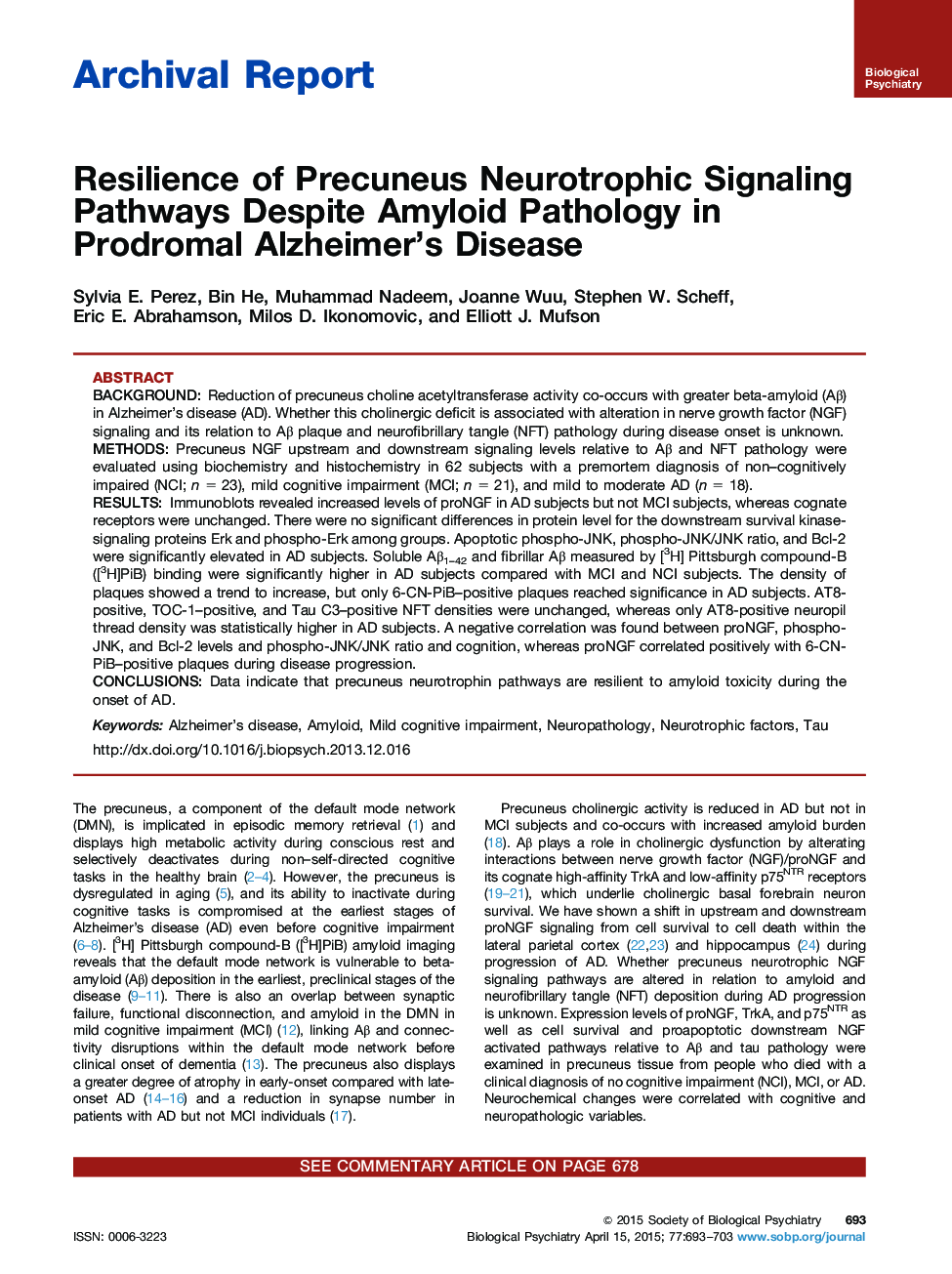| Article ID | Journal | Published Year | Pages | File Type |
|---|---|---|---|---|
| 6226763 | Biological Psychiatry | 2015 | 11 Pages |
BackgroundReduction of precuneus choline acetyltransferase activity co-occurs with greater beta-amyloid (Aβ) in Alzheimer's disease (AD). Whether this cholinergic deficit is associated with alteration in nerve growth factor (NGF) signaling and its relation to Aβ plaque and neurofibrillary tangle (NFT) pathology during disease onset is unknown.MethodsPrecuneus NGF upstream and downstream signaling levels relative to Aβ and NFT pathology were evaluated using biochemistry and histochemistry in 62 subjects with a premortem diagnosis of non-cognitively impaired (NCI; n = 23), mild cognitive impairment (MCI; n = 21), and mild to moderate AD (n = 18).ResultsImmunoblots revealed increased levels of proNGF in AD subjects but not MCI subjects, whereas cognate receptors were unchanged. There were no significant differences in protein level for the downstream survival kinase-signaling proteins Erk and phospho-Erk among groups. Apoptotic phospho-JNK, phospho-JNK/JNK ratio, and Bcl-2 were significantly elevated in AD subjects. Soluble Aβ1-42 and fibrillar Aβ measured by [3H] Pittsburgh compound-B ([3H]PiB) binding were significantly higher in AD subjects compared with MCI and NCI subjects. The density of plaques showed a trend to increase, but only 6-CN-PiB-positive plaques reached significance in AD subjects. AT8-positive, TOC-1-positive, and Tau C3-positive NFT densities were unchanged, whereas only AT8-positive neuropil thread density was statistically higher in AD subjects. A negative correlation was found between proNGF, phospho-JNK, and Bcl-2 levels and phospho-JNK/JNK ratio and cognition, whereas proNGF correlated positively with 6-CN-PiB-positive plaques during disease progression.ConclusionsData indicate that precuneus neurotrophin pathways are resilient to amyloid toxicity during the onset of AD.
